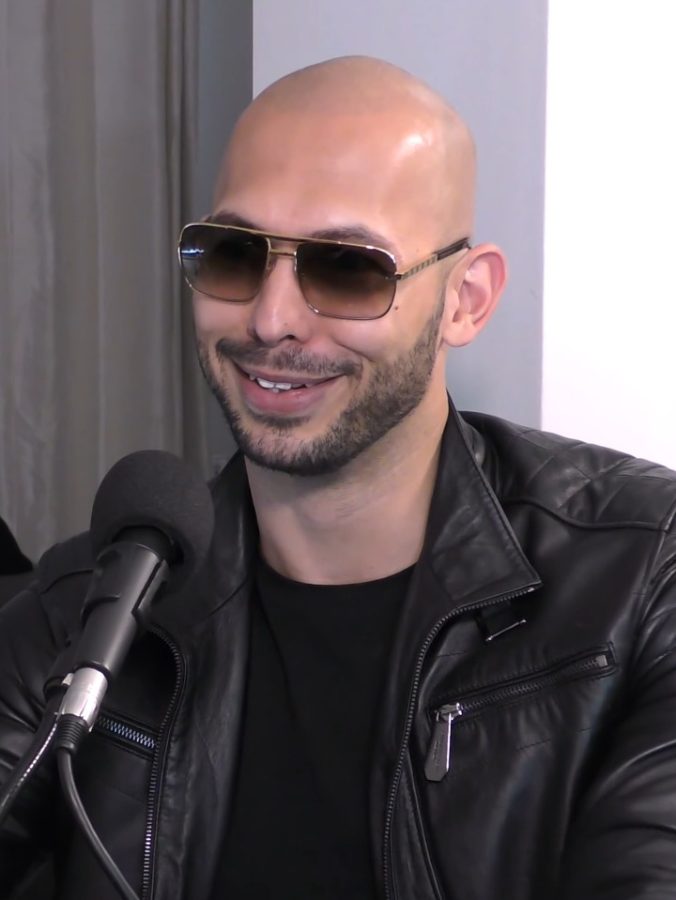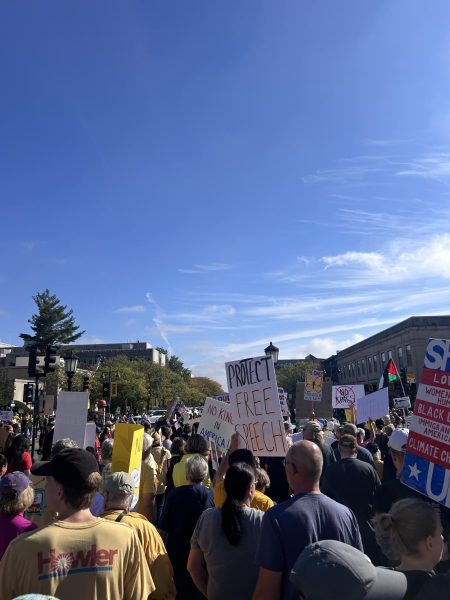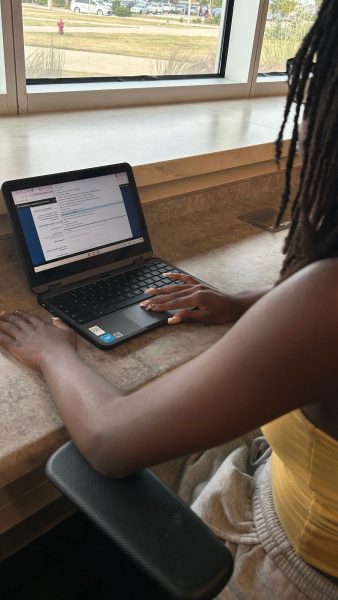The Controversies of Social Media: Andrew Tate
How much influence from social media is too much?
Andrew Tate on ‘Anything Goes With James English’, CC by 2.0
Andrew Tate speaks into a mic while being interviewed for a podcast.
What age do you remember getting social media? Many current teenagers would say sometime around the age 10-14. However, an arguably more important question is: what did you do on the internet at that age? Many people would say they watched Youtube, played mobile games, maybe even posted embarrassing pictures on Instagram. Pretty average stuff for a young person, right?
In 2022, social media has become something that no one can escape. It’s everywhere. Even old people are posting pictures of their grandkids on Facebook. Fifty-three percent of kids in the United States have a smartphone by the age of 11, according to NPR. Social media is a part of our culture. It’s how people communicate, entertain themselves, and keep up with others’ lives.
But what happens when someone starts using the internet to share their controversial opinions? Most people have heard the name Andrew Tate in the last few months. You may have seen videos or interviews of him, or maybe you just heard about him through a friend. Andrew Tate is a former kickboxer who runs a business called “Hustlers University” that claims to teach men how to make money. He also makes and posts a lot of highly controversial videos on social media.
His internet fame began growing extremely fast in 2022. He gained 4.6 million followers on TikTok, largely in part to the controversial things he said in his videos. His viewers mostly range between the ages of 13 – 25, according to Mashable. Some people worry about how his videos may affect this young audience.
Margaux Maurus, senior, said, “I dislike [the] footprint that he leaves on young boys, since a lot of his following are young men who are developing mentally. They can be really vulnerable to his beliefs and acquire them over time and treat women differently.”
According to NPR, the human brain isn’t fully developed until around age 25. This means that the majority of Tate’s viewers have only semi-matured brains. This worries some people, as many kids aren’t mature enough to make decisions about things they see on the internet, especially with Tate posting very controversial media.
“When you’re young and someone of older age talks down to you, you are a lot more susceptible to that ideology and that way of thinking. If I wasn’t as old as I am now, maybe I would have been like, ‘Oh, he’s not that bad’,” said Maurus.
In August of 2022, most social media networks banned Tate, citing violations of their policies on hate speech. This brought about an important question, where do we draw the line in situations concerning freedom of speech? Social media companies are private institutions, therefore, they have the final say on what content they want to allow on their site, but some people seem to think that they’re taking away his freedom of speech.
“I think social media platforms nowadays should be able to draw a line when it becomes any sort of ani-gay, anti-women, anti-trans, anti-people of color, [etc.]. That’s when they could draw the line and be like, the wrong people could see this,” stated Maurus.
Though Tate got banned from social media, his effect on young boys continues.
“…the kids who were viewing his TikTok, his Instagram, his Snapchat channels, who were able to listen to him and share him around. It was kind of like a domino effect. He got really famous really fast, when he should have just been cut off in the first place,” said Maurus.
Some people wonder if these controversies will become the future of the internet and social media. Asa Pelzel, sophomore, doesn’t seem to think so.
“I don’t think this is a trend, per-say. I think there’s an issue with increasing radicalization on the internet,” said Pelzel.
No matter your opinion on Andrew Tate, it’s hard to deny that the internet is a very influential place with many people spreading their ideas and opinions. Should adults be shielding kids from controversial opinions? Or, should young people be allowed to make their own decisions about how they feel?

Madelyn is a senior at Liberty. This is her fourth year in Journalism! Madelyn runs cross country and track, and is a member of the speech team. Outside...








